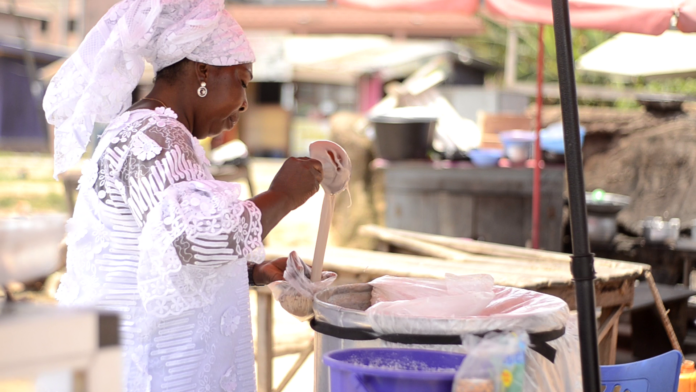Consumers of millet porridge, known popularly as ‘Hausa Koko’, are paying more to have a satisfying breakfast, as the cost of the main production ingredient – millet – surges.
Vendors say it costs a minimum 15 cedis to purchase the porridge with other accompaniments like the milk, peanuts and beans fritters or koose.
Luv Business explored the rising cost of the millet which is also impacting the sale of Brukina in the Ashanti regional capital, Kumasi.
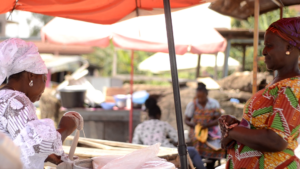
“This koko together with milk and ground is 8 cedis,” Alima Sadia, a Hausa koko vendor, told the news team as she serves her customer at Bomso, a suburb of the Oforikrom municipality.
Millet porridge or Hausa Koko is one of the favorite and accessible breakfast dishes for many Ghanaians.
Made from a mixture of grounded millet and other local spices, the porridge is usually enjoyed with other pastries, like koose.
But what was once the cheapest breakfast meal on the Ghanaian menu is now an expensive luxury.
Alimatu Sadia has been in the business for the past two decades.
“At first, we used to package the koko with fritters at 10 cedis but now it’s selling at 15 cedis. That’s how much you pay to get a satisfying meal,” she said.
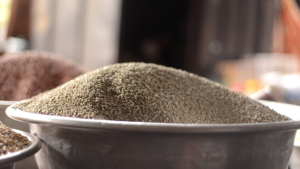
Millet is a household grain used for many delicacies in Ghana, especially in the Northern part.
Its gritty texture adds a satisfying feel when processed into Brukina, a local millet and milk smoothie.
But the snack is also seeing an astronomical rise.
“These used to sell at 3, 4 and 7 cedis. But because the price of millet has shot up, they are selling at 10 cedis and 5 cedis. We no longer sell 3 cedis,” Gifty, a Brukina vendor at Ayigya, said.
The increasing cost of the meals is attributable to the price surge and scarcity of its major ingredients, millet and beans.
The price of the commodity on the market is seeing a 120% surge from 500 cedis to 1,200 cedis.
Hajia Munira explains the increasing costs.
“Last year, a bag of millet sold at 500 cedis but now it is selling at 1,200 cedis. The exchange rate is our headache,” she said.
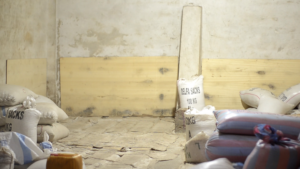
The millet is not the only increasing commodity, the beans used for the fritters added to the Hausa kokoare now shooting up.
Alhaji retails beans at the Alabar market. But his shop is almost empty after the trucks of beans he is transporting from neighbouring Burkina Faso and Niger were hijacked.
“Where we import from isn’t safe. We are sometimes held up at the checkpoints for days and when we return here most of commodities would be spoilt,” Alhaji recounted.
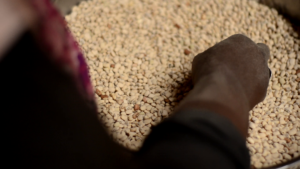
The cup of beans locally measured as “Olonka” is selling at 65 cedis and a bag is now over 2,100 cedis.
Back at Alimatu’s koko joint, some of her workers are leaving the job which serves as a daily source of income. She is no longer able to pay them an adequate wage.
“Most of my workers have left now. One of them has even packed up her stuff and ready to leave me,” she worriedly said.
Many vendors along the downstream of the value chain are anxious for respite from the skyrocketing prices.

